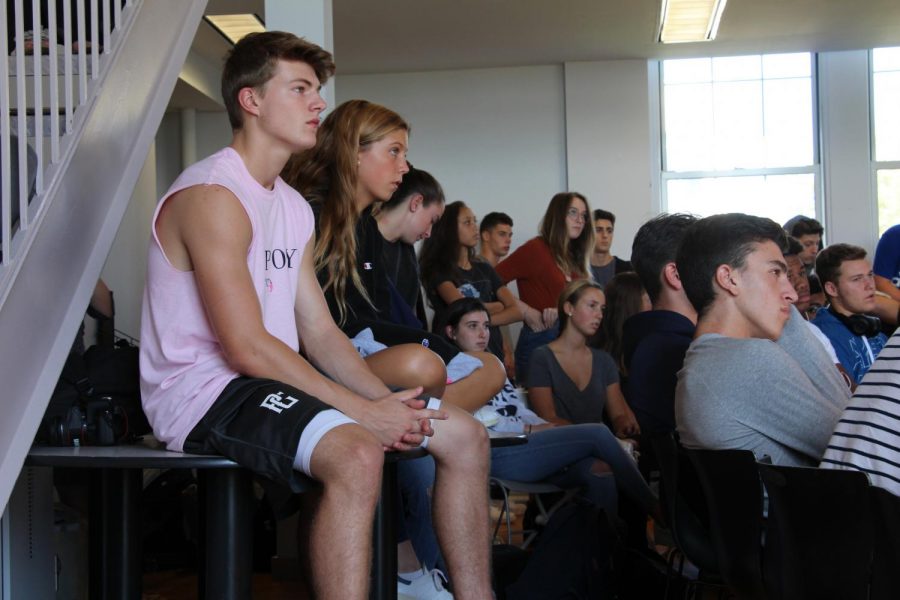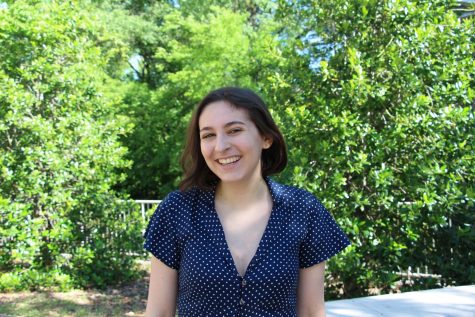A Community Forum on Sports, Politics and Activism
Students gathered in the Student Center last Wednesday to participate in the forum.
October 11, 2017
A steady flow of upper school students streamed into the Student Center on Wednesday to debate the NFL kneeling controversy and the symbolism of the American flag, filling the room near to capacity. Students edged their way into the last available seats, sat on the stairs leading down to the Student Center and even perched themselves on the balcony in order to participate in the discussion.
The debate stemmed from President Donald Trump’s repudiation of many professional football players who chose to kneel or lock arms during the national anthem in protest against racial injustice. Trump’s remarks, in which he called the players’ actions a “disrespect of our country” over Twitter, sparked a national debate not only about the protests but also about systemic racism and the meaning of the American flag. Student Body President Shakaa Chaiban and the rest of Poly’s student government organized a forum in order to tackle some of these deep-seated national issues as a school community.
“This is a sensitive and emotional time for many people,” Chaiban said in his opening remarks to the student body. “Listen before speaking. Think before speaking.”
As the noise level in the room dropped from deafening chatter to near silence, Chaiban invited six panelists to present their diverse perspectives on the issue to the community before opening the floor to comments from the group. The six panelists were junior Ben Balser, senior Buddy Dzina, senior Clara Sanchez-Vèla, senior Storm Bookhard, junior Jeovanna deShong-Connor and senior Ari Berman. Balser spoke first, arguing that kneeling during the anthem is an inappropriate way for football players to express their opinions.
“If you’re going to kneel with your entire team before the national anthem and then come in and lock arms, it sends mixed signals about what you’re actually doing,” Balser said. “I’m not saying there’s not racism in the United States. That’s happening. But there are other ways for these football players to be doing this in a way that doesn’t cause such mass conflict.”
Throughout the discussion, many students voiced similar opinions to Balsers’ while others disagreed vehemently. Students were told to refrain from snapping their fingers or showing affirmation for other students’ statements. Instead, they were encouraged to voice their beliefs through honest and open debate with one another. When some students argued that it is inappropriate for NFL players to protest while at work, senior Shanniah Wright’s hand shot up in response.
“I want to know when the appropriate time is,” Wright said.
Wright was quick to point out that each student brings a different viewpoint to the conversation based their individual definitions of freedom. She said that while most “conservative” panelists were white men, the more “liberal” ones were women or people of color.
“Your reality is not my reality,” Wright said. “When the American flag was made, there was still slavery.”
Senior Sophia Lam was the last to speak before the 45 minute discussion was brought to a close, although many students were still clamoring to make their points. To finish, Lam told the student body that “the American identity is not encompassed by 50 stars and 13 stripes.”


























